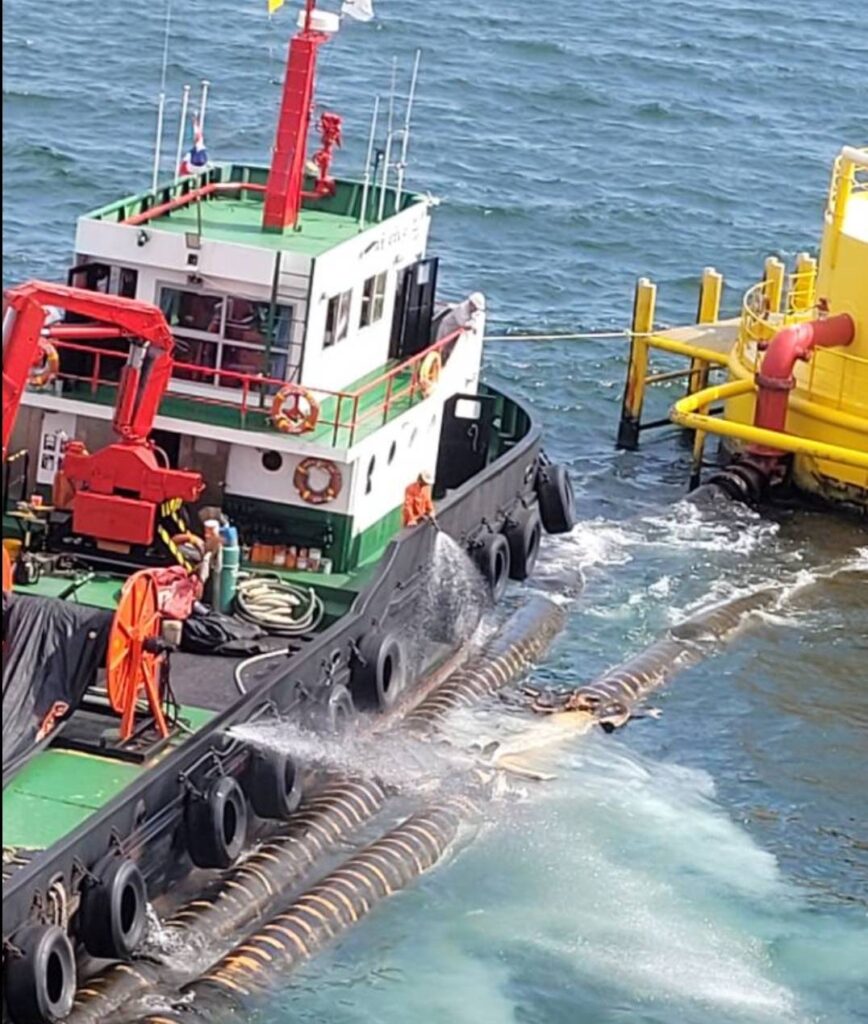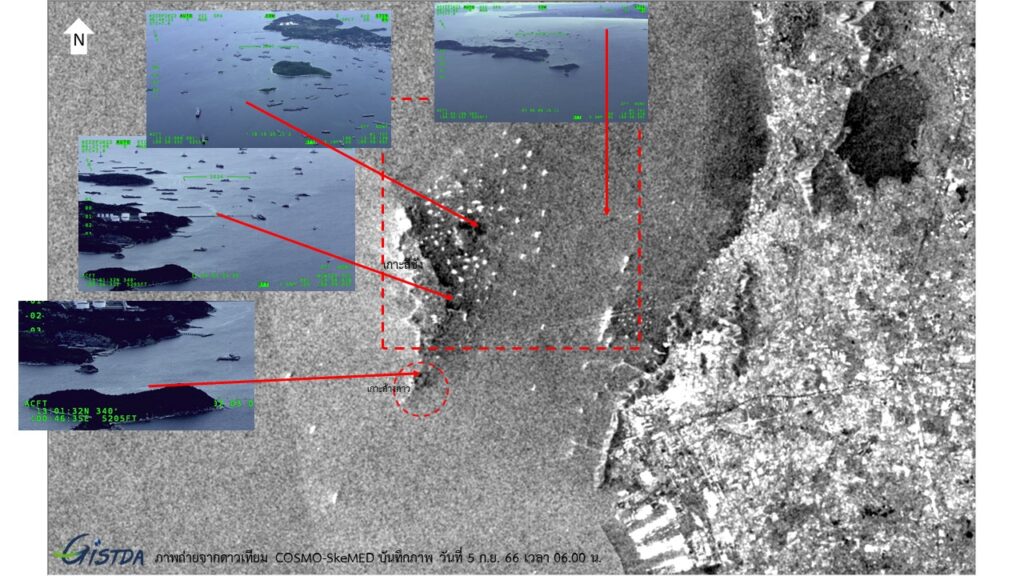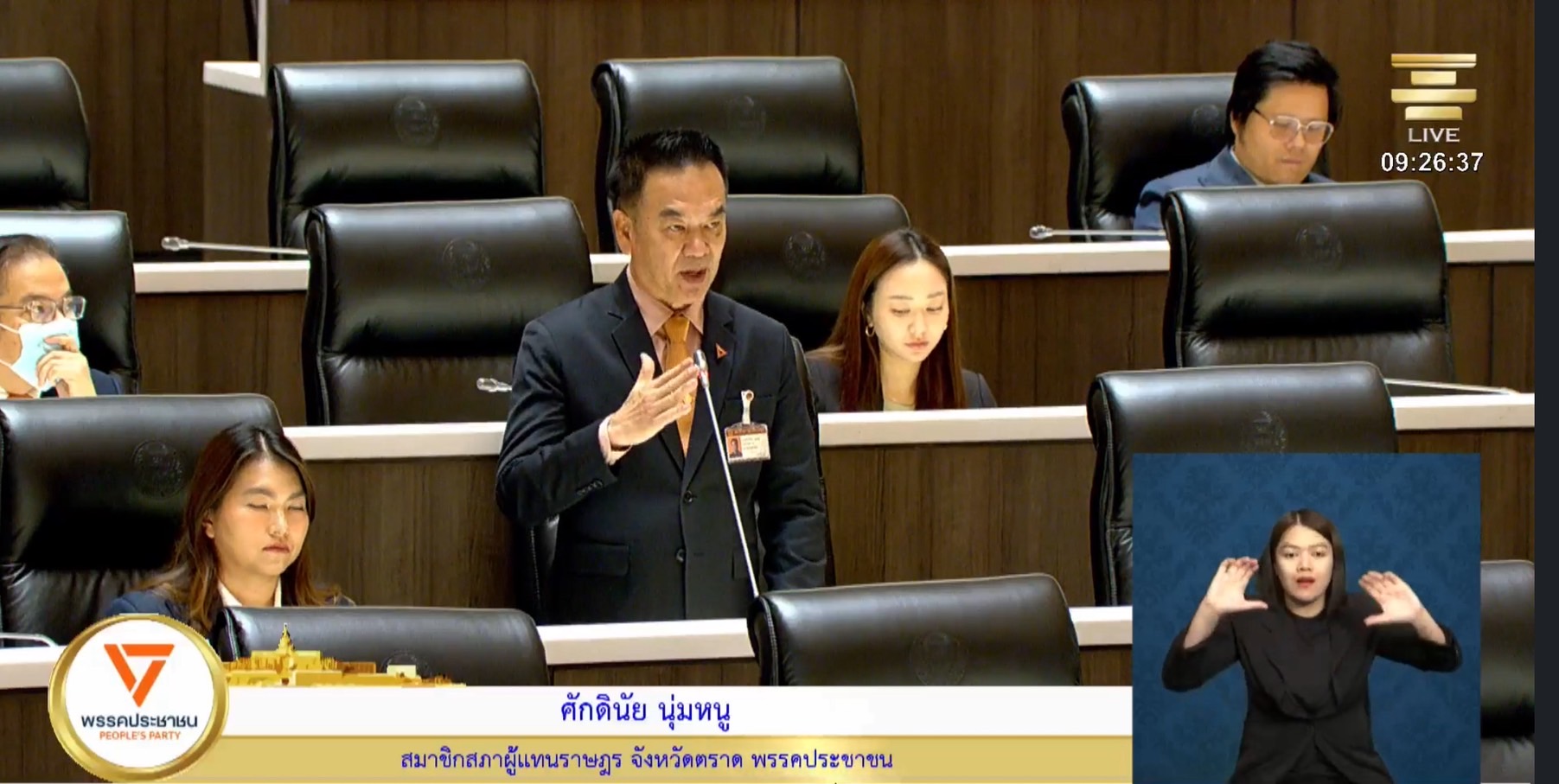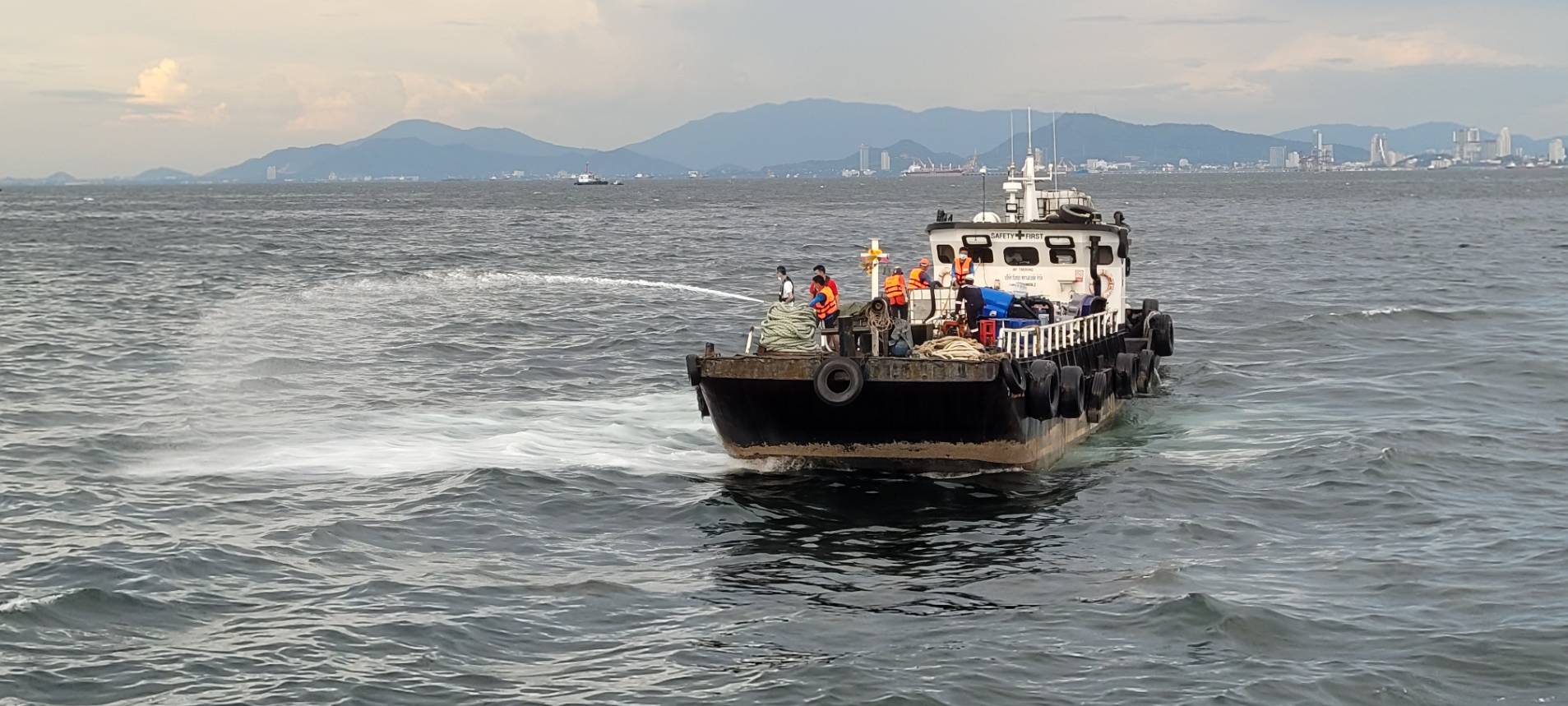BANGKOK, Sept 5 (TNA) – The Department of Marine and Coastal Resources is expediting efforts to assess the impact on marine and coastal resources resulting from a recent crude oil leak in the vicinity of the oil refinery owned by Thai Oil in Chonburi province.
Oil residues are still being found in certain areas.
Following the incident of crude oil leakage during the oil discharge around the area of the Single Buoy Mooring Buoy (SBM-2) of Thai Oil Public Company Limited’s refinery in Sriracha on Sept 3, Mr. Apichai Ekwanakul, Acting Director-General of the Department of Marine and Coastal Resources said that the department has promptly coordinated with the Marine Department, the Pollution Control Department, and Thai Oil Public Company Limited to manage the oil residues before they spread to nearby areas.
Thai Oil reported that they have successfully controlled the situation by closing the valve and deploying additional booms to contain the oil in accordance with international standards. As a result, there has been no further oil leakage.

Subsequently, both government and private sector teams conducted joint inspections for oil residues around the single-point mooring and oil transfer points in the sea. They found a thin film of oil residues, approximately 5 kilometers wide, moving towards the western part of Sichang Island and partially to Ao Udom.
Checks on Tuesday morning revealed some oil residues off Tamuen Island. Thai Oil is actively working to eliminate these residues, while requesting the Royal Thai Navy’s support for aerial images from the Unmanned Aerial Vehicle (UAV).

Furthermore, areas susceptible to the impact of the leaked oil on the coastline are being surveyed, including the potential effects on aquaculture. In the Si Racha area, there are four oyster farms extending from Bang Phra to Ao Udom. There are also 1,500 mussel rafts.
The Coastal and Marine Resources Research and Development Center has instructed its personnel to collect water samples from the affected area for water quality analysis. Continuous monitoring is also in place to prevent damage to marine resources. (TNA)














